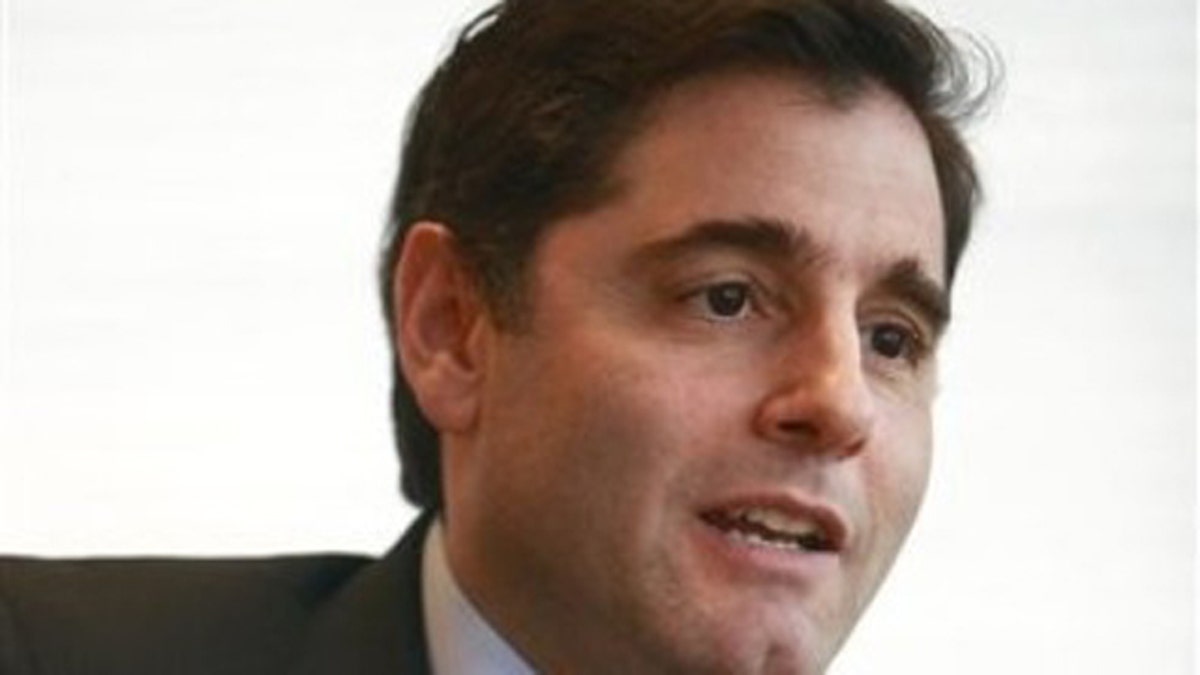
FCC Chairman Julius Genachowski (AP)
Lawmakers are on high alert as the Federal Communications Commission prepares to vote on a plan to regulate the Internet despite warnings that it could choke industry investment and hurt the economy as a whole.
The five-member commission plans to unveil, and vote on, the so-called "net neutrality" proposal on Tuesday.
Lawmakers on both sides of the aisle have been saying for months that Congress, not the Obama administration, should take the lead role in deciding whether and how much to police the web. But despite a brief backing-off earlier in the year, the FCC has pushed ahead with its new regulatory plan.
The move raises concern that the FCC could soon have its regulatory foot in the door of the wild West of the Internet -- with an eye toward eventually exerting tighter control over content at a time when sites like WikiLeaks openly snub the government.
The FCC proposal is viewed as a major breakthrough, for better or worse, for Internet oversight. And if the plan passes, it could trigger a nasty showdown with Congress next year.
"Congress has not given us the authority to do this," Robert McDowell, one of two Republican commissioners on the FCC, told FoxNews.com. McDowell, who plans to dissent, said that if the FCC follows through on Tuesday, "there really are no bounds to what the FCC could do, so long as it's done in the name of promoting the Internet in their view." That potential ranges from price control to content control, he said.
The net-neutrality plan itself is far more limited, despite concerns about where it could lead. The proposal aims to prevent service providers from discriminating against websites and companies using their networks. In other words, it is meant to ensure companies like Verizon or Comcast can't block or slow access to certain websites while giving favorable treatment to others.
FCC Chairman Julius Genachowski, who has the support of the White House, reportedly has secured the backing of the commission's two other Democratic members. He said earlier this month that the proposal "would ensure that the Internet remains a powerful platform for innovation and job creation." He said it would "empower" consumers and entrepreneurs alike while increasing market "certainty" and spurring investment.
Critics say it would do just the opposite.
They warn that net-neutrality advocates are trying to fix a problem that doesn't exist and will end up burdening the industry with a regulatory spider web in the process. Lawmakers have loudly renewed those concerns as the FCC builds momentum toward its Tuesday vote.
"The cost of that action will be measured in investments foregone, innovations stifled, and most importantly, jobs lost. With America's economy in such a fragile state, the last thing the government needs to do is burden the private sector with more ill-advised regulatory red tape," a pack of nearly 30 Republican senators wrote in a letter to the FCC last week. They argued that the oversight expansion would be "unjustified and unnecessary" and that the Internet does not suffer from the affliction for which the FCC is offering a cure.
Importantly, the letter stated that Congress, "not the commission," should determine what Internet regulation is appropriate.
The warning suggests some lawmakers might try to overrule the regulation should it pass the FCC Tuesday. Under the Congressional Review Act, Congress can strike down a regulation by passing a joint resolution.
McDowell wrote in a column Monday that the FCC was doing an end-run around Congress in order to fight an "imaginary problem." He predicted that the policy, if approved, would trigger a "billable-hours bonanza" as lawyers scramble to interpret it.
"On this winter solstice, we will witness jaw-dropping interventionist chutzpah as the FCC bypasses branches of our government in the dogged pursuit of needless and harmful regulation," he wrote in The Wall Street Journal.
McDowell also said the decision "plants the seeds" for more regulation down the road, with the threat posed by WikiLeaks already being used as a pretext for tougher enforcement plans. McDowell further accused the FCC of disregarding an April ruling from the federal appeals court in the District of Columbia, which challenged the FCC's authority over the Internet.
A month after that ruling came out, dozens of congressional lawmakers from both sides of the aisle wrote to Genachowski to warn of "serious concerns" with regulatory proposals for the Internet and broadband. They warned the proposal would create uncertainty and "jeopardize jobs," calling for Congress to step in and call the shots.
But the case for more regulation, even if it's issued by the FCC, is building in some corners.
While some argue that the free market alone will ensure service providers do not block access -- after all, consumers demand access -- others say the tinkering is already happening. Netflix, for instance, has accused Comcast of getting in the way of its online video service by charging a new fee.
Rep. Ed Markey, D-Mass., the author of a net-neutrality bill in Congress, issued a statement commending Genachowski for his latest plan earlier this month -- though he called for the concerns of net-neutrality proponents to be addressed. Some proponents have criticized the FCC plan as not strong enough, complaining that it lets mobile carriers off the hook and still could allow companies under some circumstances to pay for better service.
The White House, meanwhile, continues to support the idea. Aneesh Chopra, the chief technology officer in the administration, called the plan an "important step in preventing abuses and continuing to advance the Internet as an engine of productivity growth and innovation" in a White House blog earlier this month.




